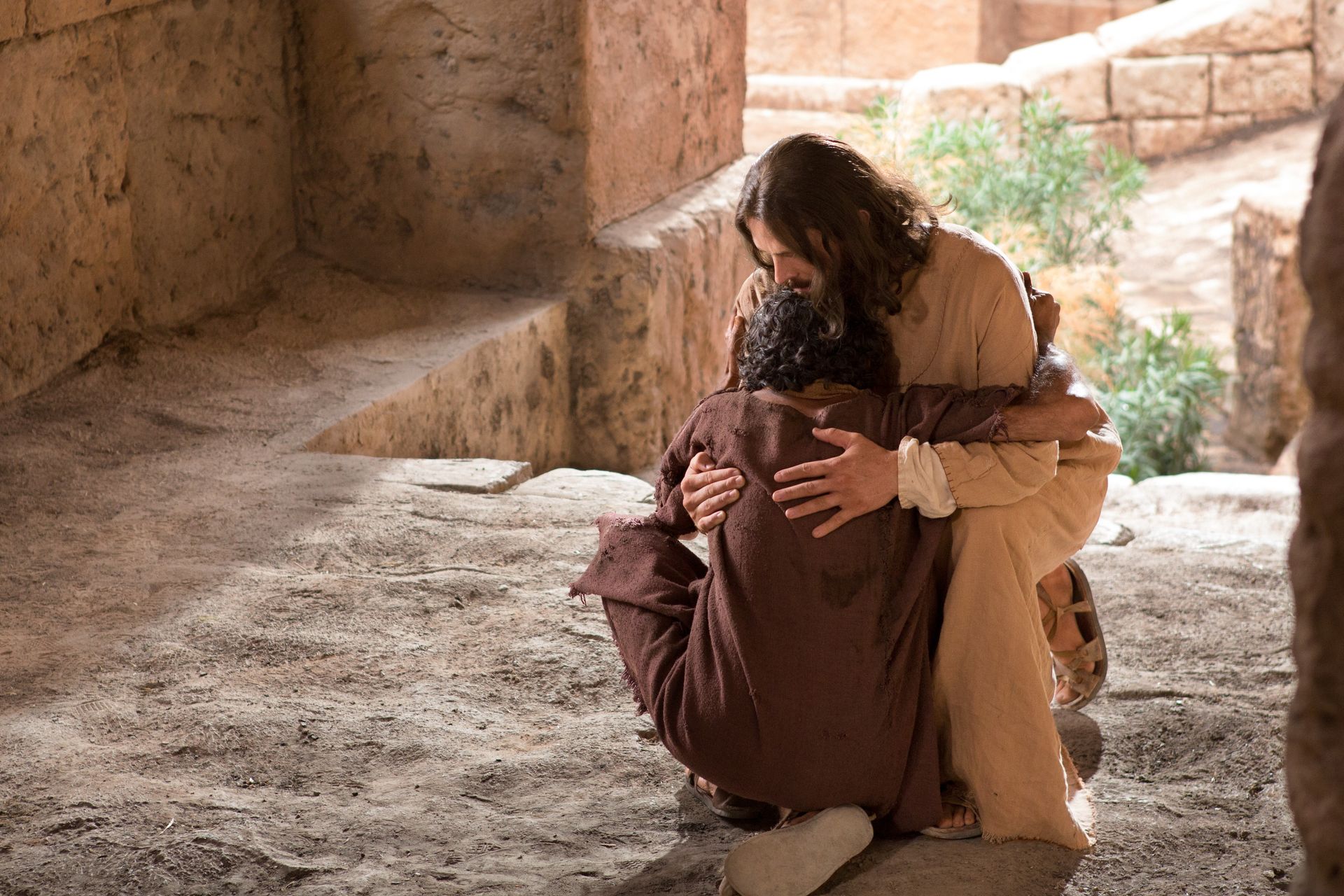Rose Sweet
Rose Sweet

How YOU can help a separated or divorced family member or friend
Is someone you love and care about going through separation or divorce? When people came to Jesus with their struggles, sorrows, or tough questions, he did four things. He:
LISTENED carefully.
LED them clearly, patiently, and consistently to the truth, whether they liked it or not.
LOVED them even if they argued or walked away.
LET GO of chasing them down, overexplaining, taking personal responsibility for them, or carrying any ongoing anxiety.
Why? Because Our Lord respected the person’s free will. But he also kept his eyes on the Father and had complete trust in God’s love for each person. We can take these same four steps and they serve as a simple guideline to best help people through the trauma of separation or divorce:
LISTEN
DO
- Listen thoroughly and primarily to understand. Make space and time to let the person share everything they must to feel safe and understood.
- Ask questions. Clarify when you must.
- Refrain from quick judgement – you never know the whole truth until you hear both sides of the story.
- If possible, make time and space to be present to their spouse, too, and listen carefully and attentively.
Avoid quick assumptions and advice. - Learn the power of keeping quiet while they talk/ share/ dump.
DON’T
- Try to fix all their problems for them.
- Give unsolicited advice. Ask first if they want your input.
- Criticize, bash, or condemn anyone. Both people have been part of your family or circle of friends and deserve your consideration and kindness.
LEAD
DO
- Pray without ceasing for them.
- Verbally affirm your love for each of them, regardless of the outcome.
- Encourage both of them to exhaust every means of reconciling possible.
- Advise them to get into professional Christian (Catholic preferred) counseling. Don’t let money be an objection; we find a way to pay experts to help save our car engine, our plumbing, or our teeth. Help them find a way for this, too.
- Recommend resources you know about. Ask at your local parish or go online.
- Suggest they not make any final decisions while their emotions are still high.
- Counsel them immediately stop any sinful behavior in which they are or have been engaged.
- Patiently challenge any wrong thinking you see they hold.
- Get some coaching on how you can best deal with all this.
DON’T
- Try to be their therapist. Get counseling or coaching for yourself in the process if you need it.
- Take sides. If one has a lot of work to do to overcome (infidelity, pornography, alcohol, drugs, or other addiction, depression or anxiety) the other has his or her own interior work to do in response.
- Tell them to go back and tolerate abuse.
- Disrespect, shame or humiliate either of them in any way.
- Share inappropriately or gossip with others.
- Get in the middle. Stay on the sidelines as a loving, wise consultant as needed.
LOVE
DO
- Help them carry their cross; helping them face harsh realities with courage and persistence is how God’s grace can stretch their minds and hearts.
- Help relieve some of their suffering, like Simon of Cyrene, without taking away their cross. The cross of divorce can bring much mental, emotional, and spiritual growth and freedom from inordinate attachments.
- Like Veronica, provide comfort or consolation in the midst of their struggles.
- Remain patient and kind even if they end up civilly divorced.
- Respect any boundaries they set—even if you disagree.
- Take the kids for a weekend.
- If you can financially help, treat them once in a while. Pay for lawyers or counseling.
- Ask specifically what they need or would like.
DON’T
- Relieve them of their responsibilities.
- Rescue them from the natural consequences of their choices. Pain is instructive and the ordinary means of growth maturity, and increased virtue.
- Make it so easy they do not grow up, learn, or grow in wisdom and virtue from all this.
- Excuse any of their sinful or selfish behavior.
- Decide for them or otherwise enable them where they are avoiding responsibility.
LET GO
DO
- Trust that God has his hand on them, their children, and your whole family.
- Stop being angry and letting it grow into bitterness and resentment.
- Stop being overly worried and letting it grow into anxiety.
- Continue to see the “big picture” where God promises to bring greater good from this all.
- Pray regularly for the whole family but without anxiety.
- Stay primarily focused on keeping your own interior life in order.
- Give thanks to God in all (1Thess 5:18)
DON’T
- Let this become an ongoing drama that consumes everyone.
- Talk about their situation with everyone.
- Seek advice from others who do not know the whole situation and who are not qualified.
- Panic about what is to come of this.
- Worry or pray obsessively.
- Lose your own peace.
___________________
Do you need some wisdom and guidance during or after your divorce? Schedule a coaching session with me (see links below) or find comfort in one of my books.







